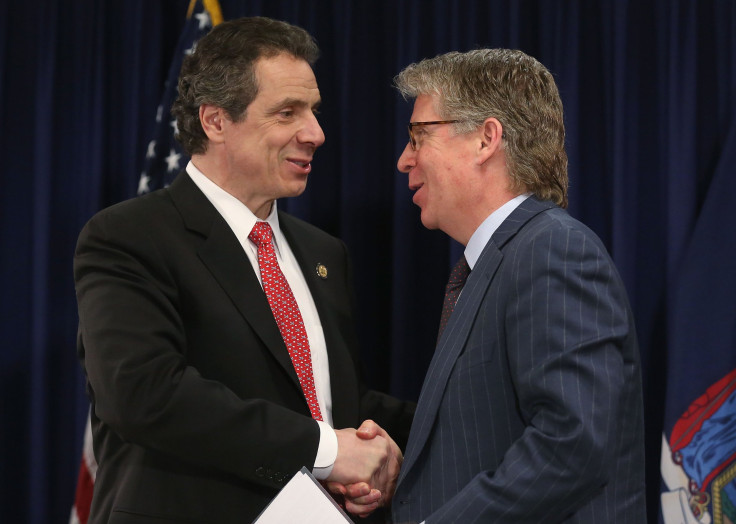Cy Vance Opponent ️Marc Fliedner On How To Fix ‘Corruption’ In The DA Office [Opinion]

New Yorkers recently learned that Manhattan District Attorney Cy Vance declined — against the recommendations of his staff — to prosecute two Trump children for fraud. (Trump attorneys made donations to Vance's campaign.)
Vance chose not to prosecute Harvey Weinstein for a vile sexual assault (and accepted donations from Weinstein associates).
And when Manhattan voters realized that the party system had afforded them no other choice for a DA candidate but Vance, they started to look for alternative choices. They started to ask why an unchallenged DA needed to raise so much money in the first place. Many New York voters are prepared to demand that they never be placed in this position again.
The first question “insurgent” candidates like me are asked by endorsing groups is, “How much money have you raised, and how much will you raise?” My recent experience as a candidate for Brooklyn District Attorney, as well as my current adventure as a drafted “write-in” candidate for Manhattan District Attorney, enable me to report directly from the front lines on the urgent need for campaign finance reform in elections for local prosecutors. Here's the bad news: Qualified candidates without access to big money are virtually precluded from running against incumbents.
Incumbents receive big contributions from those invested in maintaining the status quo, and challengers can never come close to having a war chest that measures up. In this scenario, even if an endorser or donor might consider the “insurgent” to be a better candidate, they can't be considered viable. As endorsements come rolling in, the local party heads line up behind the incumbent and the money keeps flowing. Meanwhile, state legislators refuse to implement term limits or institute common sense campaign finance reforms that will address public concerns about pay-to-play tactics. Voters who haven’t considered the daily decisions of their prosecutors or the enormity of their power over individual lives may skip the polls on election day — much to the benefit of the incumbent.
The losers in this scenario are of course the folks who have been perpetually denied access to equal justice and those who are compelled to fight for them. As a result, substantive criminal justice reform that will address the daily tragedies playing out on both sides of the criminal courtrooms has not been undertaken. Establishment candidates cherry pick piecemeal reforms to create the illusion of change, and business carries on as usual.
Why is it, then, that I remain doggedly hopeful that change can come?
Well, it seems the people — the voters — have had enough. They are watching the chilling Trump show play out daily, shaking their heads at his strident determination to roll back rights we had accepted as certain and reject human values that we had come to see as natural. They see a self-congratulatory old white boys’ club at work in Washington, and they are drawing clear parallels with the dynamics at play in their own communities. Understanding that they have a genuine opportunity to affect policy and practice at the local level, that are asserting themselves to fight for their communities. The successful primary campaign by Larry Krasner in Philadelphia is a beacon of hope. As in Manhattan, voters were disgusted by corruption in their DA’s office.
Is the criminal justice system “fixable” with some vision and courage? Absolutely. If the people demand not only that state and local governments impose term limits and fundraising regulation, but also that individual candidates reject murky contributions, great candidates will have room to challenge otherwise unopposed incumbents. If candidates hold their moral and ethical compasses firmly in hand once honored with office, they will dig in on bail reform, alternatives to incarceration, proper charging and fair discovery practices. And if they want to get reelected (for a single term), they will have to produce.
Here in New York, assistant district attorneys begin court appearances by identifying themselves as representatives of the “People” — not the “State” or the “Government,” but the “People.” The indictments signed by the elected District Attorneys say the same. If the parties and the voters demand that candidates for an office never lose sight of who it is they work for, the people’s demand for progress on criminal justice reform can be realized.
Marc Fliedner is a write-in candidate for Manhattan DA against incumbent Cy Vance Jr. He has 30 years experience as a prosecutor and civil rights attorney, and if elected, he would be the first openly gay male DA in the country.
© Copyright IBTimes 2024. All rights reserved.











